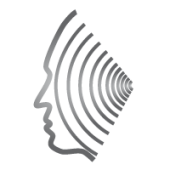Stress is never a cause of pain contrary to the popular belief. However stress may certainly increase the level of an existing pain complaint, especially when the pain complaint is musculo-skeletal or involving joints and muscles. This is likely as a result of a tightening of muscles in stressful situations. This may have its origin in situations where we would have been under physical threat and was to prepare ourselves for explosive activity such as fight or flight. In modern society we do not typically have that ever present threat of physical attack, but in it’s place we have substituted a mental stress which may have the same effect on our muscles. In a similar way stress may lead to a clenching of the teeth together possibly to brace our jaw for physical contact. Once again we may see this clenching activity when we are under stress. Once more a reaction to what was previously a physical stress, which has now largely been replaced in modern society by mental stress.
Tooth grinding, which we are all guilty of to some extent, is an activity which seems to have no rational reason. Nowadays we tend to classify it as a movement disorder which would mean it’s origins are similar to for example a tremor. Some people are very severe tooth grinders and it is often mistakenly believed that this is a sign of stress which it is not. Grinding seems to be a hereditary condition meaning we are born with a tendency to grind our teeth. Although not caused by stress, tooth grinding is certainly influenced by stress with studies clearly showing that in times of higher stress such a when taking an exam that tooth grinding is normally at a higher level.
Although tooth grinding and clenching do not cause jaw problems as commonly perceived they do have a role. It is likely that when the joint is somewhat damaged and thus compromised it is possible that the increased level of grinding in a given individual during a time of stress may prove to be too much for the damaged joint or painful muscles. The higher level of grinding caused by the stress tipped the balance, leading to an earlier progression to a pain or a jaw problem than might have occurred in a less stressful period. Meaning essentially that stress in this instance caused pain, but in truth there had to be an underlying but non evident problem with the jaw or muscles.
